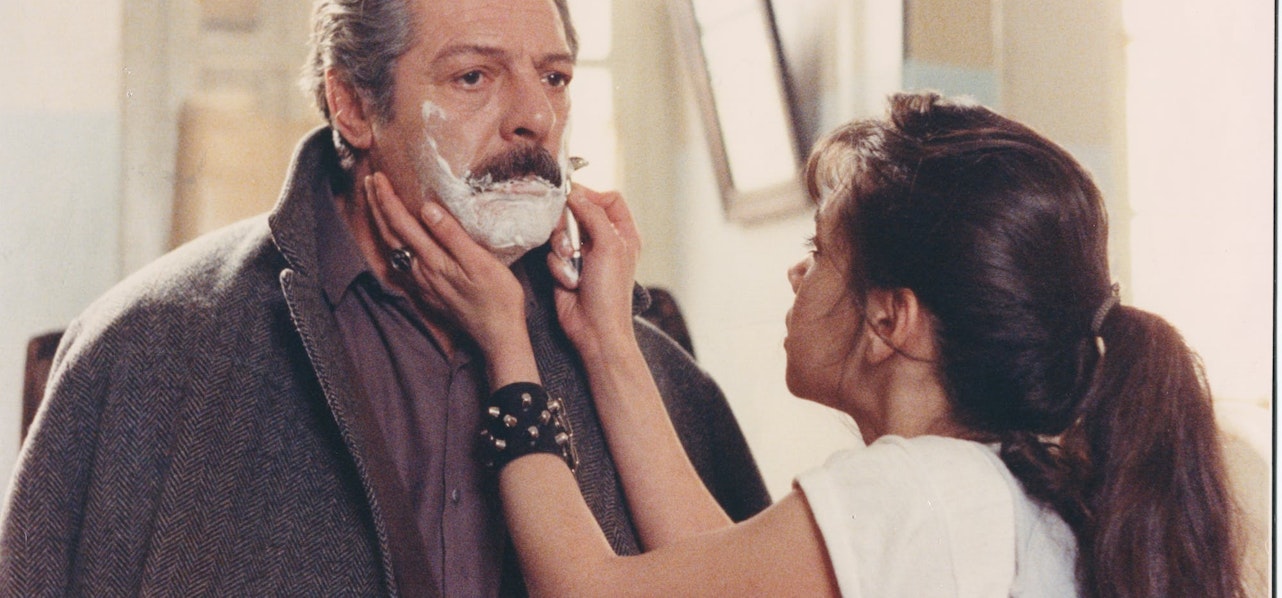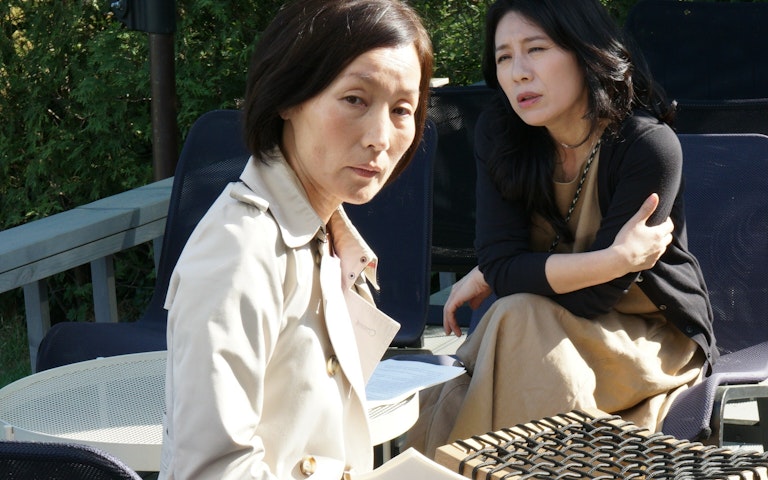Director
Theo Angelopoulos
Music (original)
Eleni Karaindrou
Cast
Marcello Mastroianni, Nadia Mourouzi, Serge Reggiani
Edition 2021
122'
-
1986
-
Drama
-
Dialogue:
French, Greek
In THE BEEKEEPER, alienation and despair have so mestastasized in the film's central figure that he's virtually one of the walking dead. Spyros, a man soured by a secret, incestuous love for his daughter, on the day of her wedding, gives up his position as a schoolteacher, his wife, his home and his city to take up again the profession of his father and grandfather before him traveling across Greece to the town in which he was born and first learned to tend the bees, following the traditional beekeeper's route, looking for flowers that will produce the best honey, a wanderer obsessed by his job. Like a bee returning to its hive after searching for food he visits his old friends and his childhood home looking for threads to bind him to the present. He drives from town to town revisiting his old haunts and comrades relighting and reliving his history in his memory, trying to reconcile his past ideals with a swiftly changing nation that makes him feel uncomfortable. At some point he picks up a promiscuous young hitchhiker who sporadically tags along with him during his journey and seems to represent a new generation without memory and unconcerned with the past, drifting from one place to the next, flitting between the blinking lights of motor vehicles, gas stations, diners, cheap hotels and traffic signs along the dark, wet glistening roadways of present-day Greece. He becomes obsessed by her. She both irritates and entices him. What he seeks in her is a contact with the future. But for her the future is a casual encounter with the next moment. In the impossibility of their relationship there is a profound despair of a man without a future. He senses a rupture, but it's not the traditional one of the conflict of generations. It's really a rupture of language. He cannot communicate, even with love, with the body. From that comes his crisis of despair. Toward his end, he takes refuge in an abandoned cinema called the Pantheon. There, mocked by the sterile white screen above him, he tries - and fails - to bring himself to life in an attempt to connect sexually with the young hitchhiker but there can be no connection between these people from different worlds, either physical or emotional. For Spyros the past is everything, for her it is nothing. In Angelopoulos' words, "It's the conflict between memory and non-memory." In the long run she only reminds him of his loneliness and isolation. Unable to come to come to terms with the present, betrayed by the past, wary of the future, Spyros falls back into silence and isolation and returns to his hives, abandoning himself to the stings of his bees.
“Angelopoulos’s admiration for Antonioni was never more apparent than in this haunting, demanding, impressive film co-scripted by Antonioni’s scenarist Tonino Guerra and starring one of the Italian master’s favourite actors.” - TIFF Cinematheque
With support of

Image gallery

Credits
Directors
Theo Angelopoulos
Music (original)
Eleni Karaindrou
Cast
Marcello Mastroianni, Nadia Mourouzi, Serge Reggiani
Scenario
Theo Angelopoulos, Tonino Guerra, Dimitris Nollas
Director of Photography
Giorgos Arvanitis
Editors
Takis Giannopoulos
Producers
Theo Angelopoulos, Giuseppe Colombo, Enzo Rispoli
More info
Dialogue
French, Greek
Countries of production
Italy, Greece, France
Year
1986
Filmography
Theo Angelopoulos
Forminx Story (1965), Broadcast (short, 1968), Anaparastasi (1970), Days of '36 (1972), The Travelling Players (1975), The Hunters (1977), Alexander the Great (1980), Athens, Return to the Acropolis (1983), Voyage to Cythera (1984), The Beekeeper (1986), Landscape in the Mist (1988), The Suspended Step of the Stork (1991), Ulysses' Gaze (1995), Eternity and a Day (1998), Trilogy I: The Weeping Meadow (2004), Trilogy II: The Dust of Time (2008), Mundo Invisível (segment, 2012)



